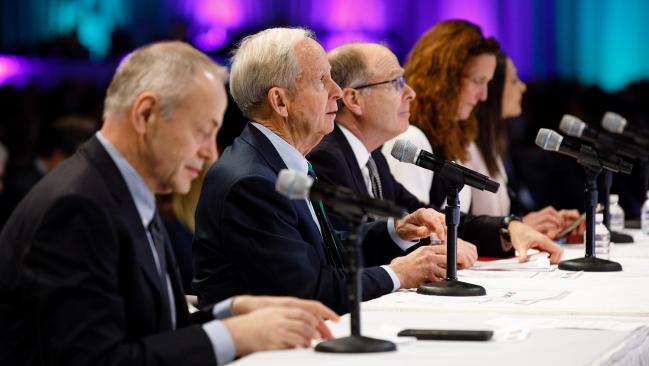Lancet Editors Reject ‘Manels’ With New Policy
With their new diversity pledge, the medical publishing group hopes to increase the representation of women in medicine.

Editors of the 18 journals under the Lancet group have announced that they are adopting a new diversity pledge, part of which includes the policy that they will no longer sit on scientific panels comprised of all men.
“As editors and journals we are just one part of an ecosystem that includes academic institutions and research funders where unacceptable gender bias is well documented, and of a broader society that disadvantages certain groups to create an uneven and unfair playing field,” they write in a statement published online yesterday. “But we are committed to be the change we want to see, and to play our part in helping to ensure diversity and inclusion in health research and publishing. We encourage other publishers, journals, and members of the science community to contribute to these pledges.”
This declaration comes 6 months after the Lancet published a special themed issue on the advancement of women in science and medicine; the issue also highlighted the poor representation of people of color in author, reviewer, and editor positions in across the wide spectrum of journals.
The new diversity pledge recognizes “the need to improve the inclusion in science of people across gender, ethnicity, geography, and other social categories,” the editors say, and it also “expresses our particular commitment to increasing the representation of women and colleagues from low-income and middle-income countries among our editorial advisers, peer reviewers, and authors.”
Additionally, the editors hope to eliminate the common practice at scientific and medical conferences of all-male panels—which they refer to as “manels”—by enacting a policy that prohibits Lancet editors from participating in any panel unless women also participate. This “commits us to gender balance in events we sponsor or [organize],” they write, adding that their “preference is for women to be included as panelists, not only as chairs or moderators.”
Lastly, the editors say that they are also taking steps to ensure more women are quoted in their press releases, represented in their media briefings, and selected as authors, reviewers, and editors. Eight of the 18 Lancet journals have already refreshed their editorial boards to include 50% women, and the remaining ones have committed to doing so by the end of the year.
Photo Credit: Copyright ACC/Scott Morgan.
Yael L. Maxwell is Senior Medical Journalist for TCTMD and Section Editor of TCTMD's Fellows Forum. She served as the inaugural…
Read Full BioSources
The Editors of the Lancet Group. The Lancet Group’s commitments to gender equity and diversity. Lancet. 2019;394:452-453.


Comments